Documenting The Young Vote in American Politics
“A lot of young people just feel like their vote doesn’t matter,” says Dariel Cruz Rodriguez, an 18-year-old political organizer from Florida, in the opening sequence of the documentary The Young Vote. Produced and directed by Diane Robinson, the film follows a group of students and activists throughout the 2020 election, focusing on their efforts to get young and underrepresented Americans to the polls. It will be screened at the Eastham Public Library (190 Samoset Road) on Thursday, Jan. 25, at 4 p.m.
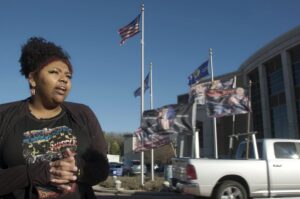
Robinson, a former teacher, says she was inspired to produce the film after seeing the low turnout among young voters in the 2016 election, in which fewer than half of Americans ages 18 to 29 cast ballots. “I just want to talk to as many young people as possible to find out why they’re not voting in higher numbers,” Robinson says.
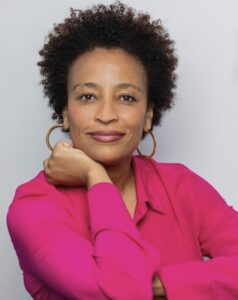
The organizers featured in the film take different approaches to engage young people. One trains volunteers on a Zoom call about how to send text messages to young Georgia voters. Another organizes Spanish-speaking volunteers in Dallas to knock on doors and mobilize Hispanic voters. Two student organizers in Florida rally support for a ballot measure that would overhaul state primaries and empower and mobilize younger voters who are disillusioned by the two-party system.
The Young Vote avoids talking about specific candidates or political movements in partisan terms. Instead, it centers on the personal stories of its subjects, exploring the issues that spurred their involvement in politics. By taking this route, the film offers a more informative examination of civic participation, moving beyond partisan boundaries to highlight the universal values inherent in the political process.
The screening is free. See easthamlibrary.org for information. —Elias Duncan
Maxwell’s Answer to ‘What Is a Poem?’
To Mary Maxwell, the author of five volumes of poetry and a longtime Truro resident, answering the question “What is a poem?” requires going back to the very beginnings. For five consecutive Fridays starting on Feb. 2, she will teach a course in the Open University of Wellfleet that will take up that quest.
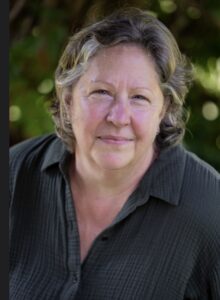
As an undergraduate at Bryn Mawr, Maxwell first fell in love with poetry by studying and eventually doing her own translations of ancient Greek and Latin texts. As she was reading Homer’s epic poems, Maxwell says, she became interested in how they had existed for generations as part of an oral tradition that had “long preceded writing”: spoken repositories of the past that had been repeated and remembered for hundreds of years as a way for people to remember their histories.
With this understanding, Maxwell sees poetry as the “technology of memory through the physical body”: a practice in which the rhythm and beat of language are crafted to serve as modes of remembering. Much of contemporary poetry, she says, is influenced by ancient forms, and an understanding of poetry’s past fosters a deeper appreciation of its present.
Each of Maxwell’s classes will include lectures, class discussions, and close readings of poems. In addition to the history of poetry, the course will incorporate philology — the study of how languages have adapted over time — and analysis of ethnological recordings of oral traditions.
“What Is a Poem? A Course for Serious Readers and Writers of Poems” will meet at Wellfleet Public Library (55 West Main St.) and costs $60. See openuniversityofwellfleet.org for information. —Oliver Egger
Music That Combines the Old World With the New
Roby Lakatos is an acclaimed virtuoso violinist who combines jazz, classical music, and Hungarian Romani music. His ensemble is composed of classically educated musicians who, like Lakatos, grew up influenced by traditional Hungarian folklore and music. The group’s combination of traditional sounds — heavily accented dactylic rhythms and distinctive ornamentations — with other genres like jazz and classical outline their unique approach to musicmaking.
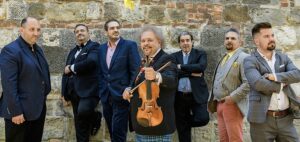
Lakatos and his ensemble will perform with the Cape Symphony Orchestra, conducted by Kevin Fitzgerald, in a concert titled “Passport to Hungary” at the Barnstable Performing Arts Center (744 West Main St., Hyannis) on Saturday, Jan. 27 and Sunday, Jan. 28.
Czech Consul John Zavrel describes Lakotos’s music in a statement on the Cape Symphony website. “When Lakatos mixes the so-called ‘classical music’ with the magic of the Hungarian-gypsy vitality,” writes Zavrel, “it does not turn into a disrespectful attitude toward the ‘higher’ cultural heritage, but it more reflects the deep tradition rooted in cultural heritage … and offers new, refreshing pleasures to the listener and music lover.”
The program will include works by Hungarian composers Zoltán Kodály, Franz Liszt, and Béla Bartók, as well as shorter pieces by lesser-known composers. Lakatos will also perform Rimsky-Korsakov’s popular “Flight of the Bumblebee.” Tickets are $32 to $72, with reduced prices for students. See capesymphony.org for more information. —Dorothea Samaha
A Romantic Afternoon With Red Door Chamber Music
The 19th-century Romantic era in musical history was a time of experimentation, rule-breaking, and a reach for “the infinite.” Before, Classical music adhered to specific guidelines and boundaries. Music was purely music; any emotions an audience felt while listening were considered coincidental. But Romantic composers began writing music to attempt to represent the infinite expanse of the universe and human feelings. Music transcended its definition and became a vessel for emotion and storytelling.
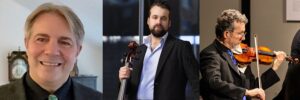
Music of the Romantic era is the subject of Red Door Chamber Music’s “Exploring the Romantic Soul” on Sunday, Jan. 28 at 3 p.m. at the Provincetown United Methodist Church (20 Shank Painter Road). The program includes music by Ludwig van Beethoven, Antonin Dvorak, and Amy Beach, which will be performed by ensemble codirector and pianist Craig W. Combs, violinist Jeffrey Thurston, and guest cellist Tyler Michael James.
Beethoven is often considered the composer who bridged the Classical and Romantic eras. The ensemble chose Beethoven’s Cello Sonata in C Major to show this transition into Romanticism. Composed in 1815, the piece maintains a delicate balance of classical politeness and romantic passion.
Dvorak’s 1891 Piano Trio in E minor — also called the “Dumky Trio” – is described as “vividly imaginative and emotionally charged” in a statement on Red Door Chamber Music’s website. Dvorak is known for incorporating of folk music into his compositions, and the Dumky Trio features moments of simple, pure folk melodies with passages of profound Romantic expression.
The program also includes American composer Amy Beach’s Romance for Violin. Composed in 1893, it is a stunning example of American Romanticism: a musical genre characterized by dramatic dynamics and sentimental melodic lines.
Tickets are $20 (suggested donation) at the door. See reddoorchambermusic.com for information. —Eve Samaha
A Look at New England’s Whaling Heritage
For more than a hundred years beginning in the late 18th century, whaling dominated nearly every facet of life in coastal New England. Tens of thousands were employed on whaling ships and in processing factories, and the products made from captured whales — from the whale oil that was used for household illumination and industrial lubrication to the baleen that was made into a wide range of goods including baskets and corset stays — were an integral part of the region’s economy. After reaching its economic and commercial peak in the middle decades of the 19th century, the industry began a slow decline with the advent of industrial products such as coal oil and kerosene. The last whaling port closed in Boston in 1903.
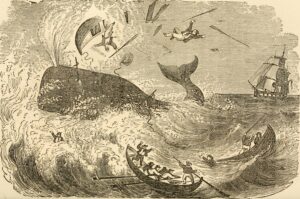
Educator and historian Michael Pregot will discuss the history of New England’s whaling industry in a talk at the Truro Public Library on Saturday, Jan. 27 at 2 p.m. Through stories of renowned whaling captains, the lecture will cover the diverse methods of whaling in New England — from the early days of drift whaling to the later era of herding and Arctic whaling — as well as the economic rise and fall of major whaling centers from Nantucket to Wellfleet, New Bedford to Provincetown.
The lecture is free. See trurolibrary.org for information.



